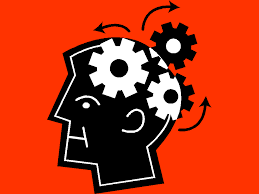Some people love the Holiday season and enjoy every aspect of it.  Other people dread this time of year, whether it brings up painful memories, heightens loss or causes more struggle with an addiction. Regardless of what the struggles or reasons are, we can prepare a Holiday Survival Toolkit to help navigate this time of year as effectively as possible. The Toolkit requires physical, mental and emotional resources and coping skills.
Other people dread this time of year, whether it brings up painful memories, heightens loss or causes more struggle with an addiction. Regardless of what the struggles or reasons are, we can prepare a Holiday Survival Toolkit to help navigate this time of year as effectively as possible. The Toolkit requires physical, mental and emotional resources and coping skills.
Physically — Make sure you are getting enough sleep. Running on empty leaves you vulnerable to getting sick and it also lessens your ability to cope. Sleep deprivation is known to severely impact mood functioning. If you overeat (which is part of normal eating over the holidays) correct gently by returning to moderate, intuitive eating as able. Don’t swing into restriction which might create binge urges and mindless eating. Get some movement or activity. Take a leisurely walk or do some gentle stretching. If you don’t fit a workout in, don’t sweat it! What you do for the remaining 360 days of the year is more important to your health and wellness.
Mentally — Maintain some structure. Some structure or routine helps to keep you tuned into a sense of life being manageable. For persons more sensitive to change in their environment, maintaining some familiarity eases anxiety and reduces the unknowns. Don’t rely on drugs, alcohol or other substances as this often exacerbates the problem and causes unwelcome side effects. If you notice you are headed into a problem area, stop right then and there. It’s not too late to change the outcome! This is where having a plan rather than ‘waiting to see’ can be a game changer. Check your thoughts. What are you thinking about or telling yourself? If the monologue is harsh, critical or fear mongering, your mood will drop. Challenge yourself to stick to the facts rather than assuming, guessing, making stuff up or reading into things.
or other substances as this often exacerbates the problem and causes unwelcome side effects. If you notice you are headed into a problem area, stop right then and there. It’s not too late to change the outcome! This is where having a plan rather than ‘waiting to see’ can be a game changer. Check your thoughts. What are you thinking about or telling yourself? If the monologue is harsh, critical or fear mongering, your mood will drop. Challenge yourself to stick to the facts rather than assuming, guessing, making stuff up or reading into things.
Emotionally — Don’t judge yourself. “This shouldn’t be so hard…” “I shouldn’t still be sad.” According to whom? When we judge the emotions we add shame to them and discount them. Validate the feelings rather than judging them. Feelings aren’t facts, they are simply feelings passing through to give us information on how we are doing emotionally. They aren’t meant to drive but they do provide us with important operating information.  Feelings of loneliness help us know we are lacking in connection. Sadness points us toward a valid need for comfort. Allow downtime. Just as you wouldn’t let your phone or gas tank run continually on low, prioritize the need to recharge. Plug in to something that puts some life and energy back into you. Detachment and checking out is not effective downtime. It’s like shutting your phone off when you have a low battery.
Feelings of loneliness help us know we are lacking in connection. Sadness points us toward a valid need for comfort. Allow downtime. Just as you wouldn’t let your phone or gas tank run continually on low, prioritize the need to recharge. Plug in to something that puts some life and energy back into you. Detachment and checking out is not effective downtime. It’s like shutting your phone off when you have a low battery.
Finally — be kind to yourself and others. Doing something thoughtful for someone else might be the thing that actually helps you through the season. Don’t isolate. If you need some time alone because it’s helpful, do it. This time will pass — sometimes like a kidney stone, but it will be over in a few days. Hang in there. You CAN do this because you are — one step at a time.




